CRT Gaming
For gameplay evaluations on a 24" widescreen monitor, please head straight to our widescreen performance section.The Elder Scrolls IV: Oblivion
Publisher: 2K GamesWe used the latest addition to the impressive Elder Scrolls series of titles, Elder Scrolls IV: Oblivion with the 1.1 patch applied. It uses the Gamebyro engine and features DirectX 9.0 shaders, the Havok physics engine and Bethesda use SpeedTree for rendering the trees. The world is made up of trees, stunning landscapes, lush grass and features High Dynamic Range (HDR) lighting and soft shadowing. If you want to learn more about The Elder Scrolls IV: Oblivion, we recommend giving our graphics and gameplay review a read.
The graphics options are hugely comprehensive, with four screens of options available for you to tweak to your heart's content. There is also the configuration file too, but we've kept things as simple as possible by leaving that in its out of the box state. For our testing, we did several manual run throughs to test the game in a variety of scenarios ranging from large amounts of draw distance, indoors and also large amounts of vegetation. Our vegetation run through is the result that we have shown, as it proved to be the most stressful - we walked up the hill to Kvach, where the first Oblivion gate is located.
________________________________________________________________________________
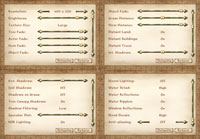
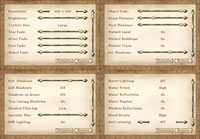
ATI Radeon X1950XTX / Sapphire Radeon X1900XTX
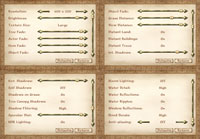
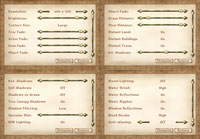
BFG Tech GeForce 7950 GX2 / BFG Tech GeForce 7900 GTX OC
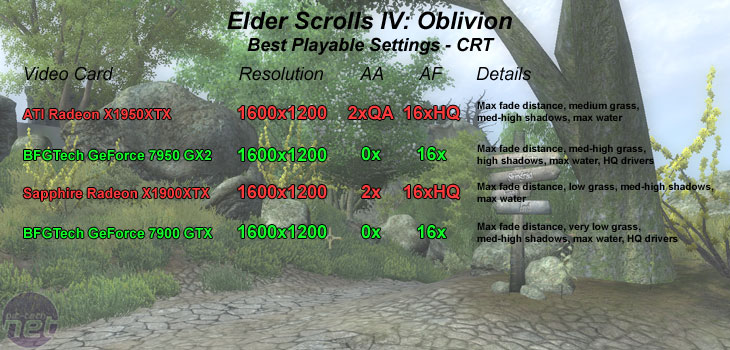

The BFGTech GeForce 7950 GX2 was unable to run with both HDR and anti-aliasing enabled at the same time, and the difference was quite startling in built up areas of the game. The differences were less-obvious in the wooded areas but if you've got eyes that are sensitive to aliasing, you'll be able to tell the difference without too much trouble at all. Despite this, the GeForce 7950 GX2 was capable of playing the game with higher details, but we had to enable high quality anisotropic filtering to remove some harsh mipmap transitions and texture shimmering.
Sapphire's Radeon X1900XTX was also capable of playing the game with 2x AA / 16x HQ AF enabled at 1600x1200. However, in order to attain a smooth frame rate, we had to drop the grass detail down a little. We had to lower the details further to attain a smooth frame rate on the BFGTech GeForce 7900 GTX OC.
Overall, we felt that the Radeon X1950XTX delivered the best gaming experience out of the cards tested in Elder Scrolls IV: Oblivion when using a CRT.

MSI MPG Velox 100R Chassis Review
October 14 2021 | 15:04









Want to comment? Please log in.